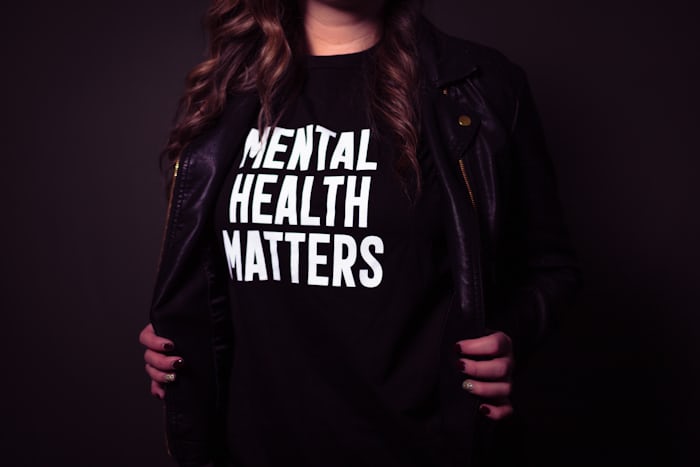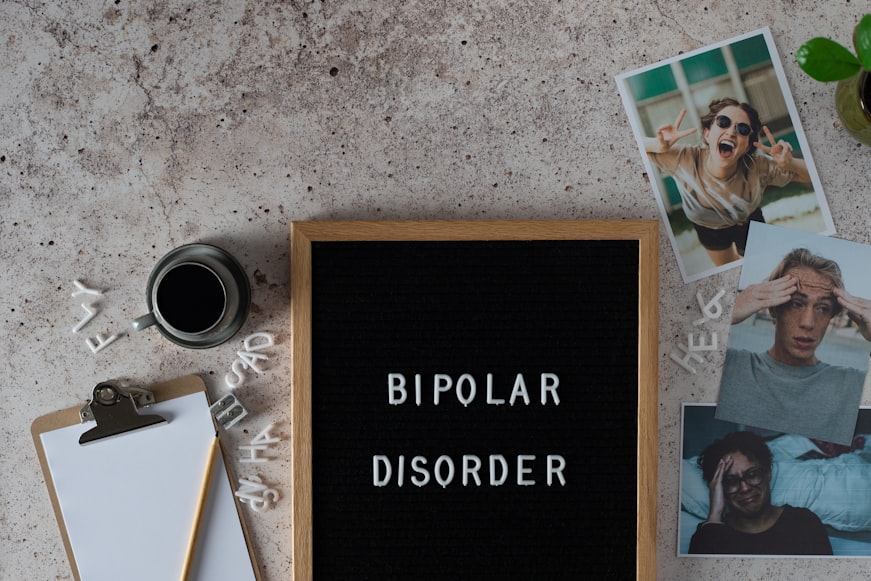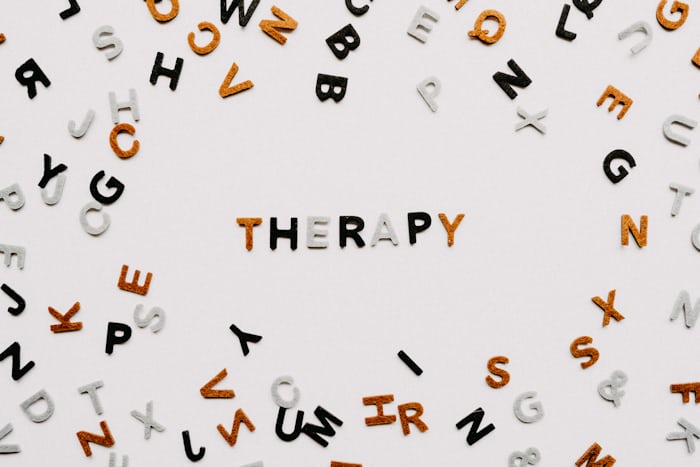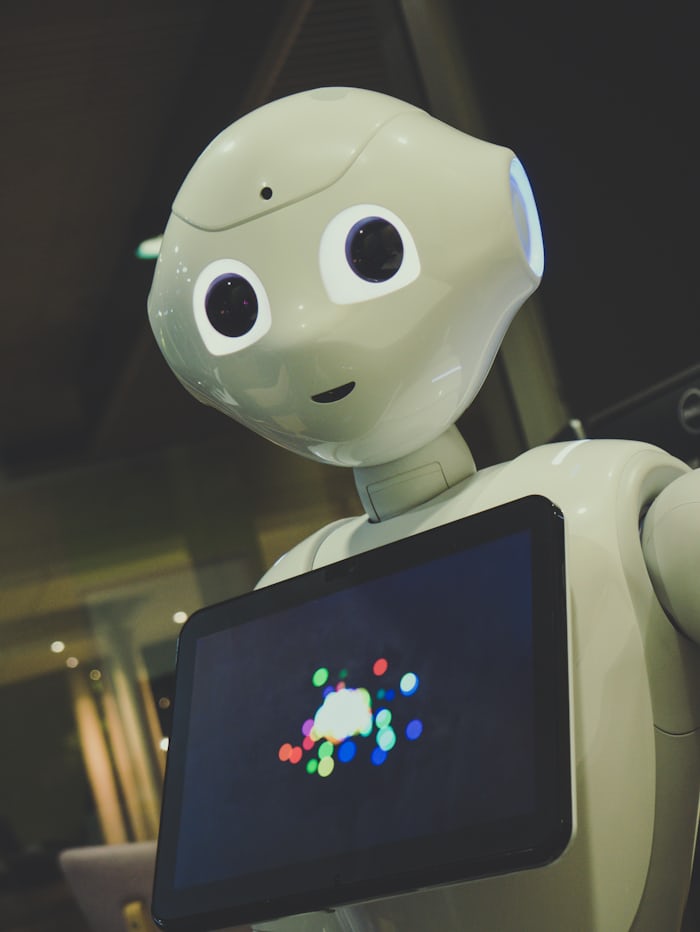As scientists and technologists push the boundaries of artificial intelligence, a pressing question emerges: Can AI diagnose mental illness? The intersection of machine learning and mental health care presents one of the most fascinating – and controversial – frontiers in modern medicine.

Picture this: a world where your smartphone could potentially detect early signs of depression, or where an algorithm could help psychiatrists make more accurate diagnoses. It sounds like science fiction, but we’re closer to this reality than you might think. The stakes are incredibly high – with nearly one billion people worldwide living with mental health conditions and a chronic shortage of mental health professionals, the potential impact of AI in this field could be revolutionary.Yet, as we stand at this technological crossroads, important questions arise.
Table of Contents

Can machines truly understand the complex nuances of human emotion? How do we balance the promise of AI-driven mental health care with the irreplaceable human element of psychological treatment? Let’s dive into the remarkable developments, challenges, and ethical considerations shaping this emerging landscape.
Can AI Detect Mental Health Conditions Early?
Early detection of mental health conditions has long been a challenge in healthcare, but AI is opening up intriguing new possibilities. Imagine having a digital companion that could spot subtle changes in your behavior patterns before you or your loved ones notice something’s amiss.
Here’s where things get fascinating: AI systems are already analyzing patterns in our daily digital footprint – from our typing speed and social media activity to our voice patterns and facial expressions.
These seemingly ordinary details can tell a remarkable story about our mental state. For instance, research has shown that changes in how we type on our phones, the time we spend scrolling social media at night, or even subtle shifts in our voice pitch could signal the early onset of conditions like depression or anxiety.

Think of it like a highly sophisticated early warning system. Just as your car’s dashboard lights up before a major breakdown, AI tools are being developed to detect early warning signs of mental health challenges. Studies at leading institutions have demonstrated that machine learning algorithms can identify linguistic patterns in social media posts that may indicate increased risk of conditions like depression, anxiety, or even suicidal ideation – often weeks or months before traditional clinical diagnoses.
But here’s the crucial part: these AI systems aren’t replacing mental health professionals. Instead, they’re acting like highly sensitive radar systems, flagging potential concerns that deserve professional attention. It’s similar to how your fitness tracker might notice irregular heart patterns and suggest you see a doctor – except here, we’re talking about monitoring mental well-being.
Of course, this technology isn’t without its challenges. Questions about privacy, accuracy, and the risk of false positives remain at the forefront of the discussion. After all, mental health is incredibly complex and deeply personal. However, in a world where many people struggle to access mental health care, these AI-powered early detection systems could be game-changers in getting people the help they need sooner rather than later.

How AI Identifies Schizophrenia: A Deep Dive
From the mysterious world of neural networks to the complex patterns of human behavior, AI’s approach to identifying schizophrenia represents one of medicine’s most fascinating technological advances. Let’s pull back the curtain on how this actually works.
Think of AI as an incredibly observant detective, one that can spot patterns invisible to the human eye. When it comes to schizophrenia, AI systems analyze multiple data points simultaneously – from brain scans and speech patterns to facial expressions and movement analysis. It’s like having thousands of expert observers working in perfect synchronization, each focusing on different aspects of a person’s behavior and physiology.

The journey typically begins with brain imaging. AI algorithms have become remarkably adept at analyzing MRI scans, identifying subtle structural and functional differences that might indicate schizophrenia. These systems can detect minute variations in brain tissue patterns and neural connectivity that even experienced radiologists might miss. For instance, research has shown that AI can spot specific changes in the temporal and frontal lobes – areas often affected in schizophrenia – with impressive accuracy.
But it doesn’t stop at brain scans. One of the most groundbreaking applications is in speech analysis. AI systems can detect characteristic patterns in speech that often appear in people with schizophrenia – subtle changes in rhythm, tone, and word choice that might be early indicators of the condition.
These systems can pick up on disorganized speech patterns, unusual word associations, and changes in verbal fluency that are common in schizophrenia.
Movement analysis is another fascinating piece of the puzzle. AI-powered computer vision can track slight changes in facial expressions, body movements, and gestural patterns that might indicate the presence of schizophrenia. These systems can detect the reduced facial expressiveness (flat affect) and unusual motor patterns that sometimes accompany the condition.

However, it’s crucial to understand that AI isn’t making these diagnoses in isolation. Instead, it’s providing valuable data points that mental health professionals can use alongside their clinical expertise. Think of it as giving psychiatrists a powerful new lens through which to view their patients’ conditions – enhancing, rather than replacing, human judgment.
The technology still faces important challenges. For instance, ensuring these systems work equally well across different demographics and cultural contexts remains a crucial concern. Additionally, there’s the ongoing challenge of distinguishing between schizophrenia and other conditions that might present similar patterns.
Despite these challenges, the potential impact is enormous. Early identification of schizophrenia can significantly improve treatment outcomes, and AI’s ability to spot subtle indicators could help clinicians intervene sooner, potentially changing the trajectory of patients’ lives.
Can AI Accurately Recognize Autism Spectrum Disorders?
While traditional autism diagnosis can take months or even years, AI is opening up remarkable new possibilities for faster, more consistent recognition of Autism Spectrum Disorders (ASD). Let’s explore this groundbreaking intersection of technology and neurodevelopmental assessment.

Imagine having a digital tool that could analyze a child’s behavior during a brief video session, picking up on subtle social and behavioral cues that might indicate autism. This isn’t science fiction – it’s happening right now. AI systems are being trained to observe and analyze behaviors that are characteristic of ASD, from eye contact patterns to social interactions and repetitive movements.
One of the most promising applications involves analyzing children’s attention patterns and social engagement. AI-powered eye-tracking technology can monitor how children interact with social stimuli, measuring things like how long they maintain eye contact or how they respond to facial expressions.
These systems can process thousands of data points per second, creating detailed behavioral profiles that help identify potential signs of autism.Speech analysis is another fascinating frontier. AI algorithms can detect subtle variations in speech patterns, prosody (the rhythm and intonation of speech), and language development that might indicate ASD.

For example, some systems can analyze recordings of children’s vocalizations to identify early signs of atypical language development – potentially flagging concerns before they become apparent through traditional assessment methods.
Movement analysis adds another layer to this technological assessment. AI can track and analyze motor patterns, identifying the distinctive movement signatures that often accompany autism. From repetitive behaviors to differences in gait and coordination, these systems can spot patterns that might be missed in brief clinical observations.
But here’s the crucial point: AI isn’t replacing human diagnosticians – it’s empowering them. Think of it as giving clinicians a powerful magnifying glass that helps them see subtle details more clearly. The technology can help standardize screening processes, reduce waiting times for diagnosis, and potentially identify cases that might otherwise be missed.

Of course, challenges remain. Ensuring these systems work effectively across different ages, cultures, and presentations of autism is crucial. There’s also the ongoing task of balancing technology’s precision with the nuanced understanding that experienced clinicians bring to diagnosis.
The potential impact, however, is profound. Earlier identification of autism can lead to earlier intervention, which often means better outcomes. In a world where autism diagnosis can be delayed by months or years due to limited resources and long waiting lists, AI-assisted screening could help more children access the support they need, when they need it most.
AI and ADHD: How Technology Helps Spot Symptoms
We’ve all heard about fidgeting, difficulty focusing, and impulsivity as hallmarks of ADHD. But what if a computer could spot these symptoms before they become obvious, potentially transforming how we identify and support individuals with ADHD?

The answer lies in some remarkably innovative applications of AI.Let’s start with something unexpected: AI-powered video analysis can now track micro-movements and attention patterns during everyday activities. Imagine a system that can analyze a child’s engagement during homework or playtime, detecting subtle patterns that might escape even the most attentive observer. These systems can measure things like screen attention spans, activity level variations, and even slight shifts in posture that might indicate attention challenges.
One particularly fascinating development is the use of AI in analyzing educational gameplay. When children interact with educational apps or games, AI algorithms can track their problem-solving approaches, response times, and patterns of engagement. It’s like having a highly sophisticated observer noting every detail of how a child approaches tasks – from their decision-making speed to their ability to maintain focus over time.
But here’s where it gets really interesting: AI isn’t just looking at behavior. Some cutting-edge systems are analyzing voice patterns during natural conversations. These tools can detect subtle variations in speech rhythm and organization that often accompany ADHD – patterns that might be imperceptible to the human ear. For instance, they might identify characteristic changes in verbal pacing or thought organization that could indicate attention difficulties.

The technology also extends to academic performance analysis, but not in the way you might think. Rather than just tracking grades, AI systems can analyze how students approach their work. They might notice that a student consistently starts assignments with great focus but struggles to maintain attention after the first 15 minutes, or that they perform better in short, intensive bursts rather than during longer tasks.
What makes this technology particularly powerful is its ability to gather data in natural settings – at home, in school, or during play. Unlike traditional ADHD assessments that often rely on observations in clinical settings, AI can track patterns over extended periods in real-world environments, providing a more complete picture of an individual’s challenges and strengths.

However, this isn’t about replacing human judgment. Instead, think of it as providing clinicians with a detailed map of behavior patterns that can help inform their diagnoses and treatment plans. It’s about adding another layer of insight to the complex process of identifying and understanding ADHD.
This technology could be especially valuable for identifying ADHD presentations that might otherwise fly under the radar – like the quiet daydreamer who doesn’t show obvious hyperactivity, or the high-achieving student who struggles silently with executive function. By catching these less obvious cases earlier, we can help ensure that more people get the support they need to thrive.
The Ethical Considerationn Of Using AI In Mental Health Diagnosis
The promise of AI in mental health diagnosis comes with profound ethical questions that we can’t afford to ignore. Let’s dive into the complex moral landscape where artificial intelligence meets human psychology.
Privacy concerns
Privacy concerns stand at the forefront of this discussion. When AI systems analyze everything from our social media posts to our voice patterns and facial expressions, where do we draw the line between helpful monitoring and invasive surveillance?
Consider a teenager whose social media activity flags potential depression markers – who gets access to this information, and how do we ensure it doesn’t lead to stigmatization or discrimination?
Bias
The question of bias in AI systems deserves special attention. These systems learn from existing data, which means they might inherit – and potentially amplify – societal biases. For instance, if the training data predominantly comes from certain demographic groups, the AI might be less accurate in diagnosing mental health conditions in underrepresented populations. This could worsen existing healthcare disparities rather than reduce them.
The Human Element
Mental health diagnosis isn’t just about checking boxes or identifying patterns – it’s about understanding the complex interplay of a person’s experiences, emotions, and circumstances. Can AI truly grasp the nuances of cultural differences in how mental health symptoms present? What about the role of trauma, personal history, or social context?

Over-reliance
The risk of over-reliance on technology presents another crucial concern. While AI can process vast amounts of data and identify patterns, there’s a danger in reducing mental health to algorithms. We must ensure that AI remains a tool to enhance human judgment rather than replace the essential human connection in mental healthcare.
Data security
Data security adds another layer of complexity. Mental health information is incredibly sensitive. How do we protect this data from breaches or misuse? What happens if insurance companies or employers gain access to AI-generated mental health assessments?
Conclusion
As we stand at the intersection of artificial intelligence and mental health care, we’re witnessing a transformation in how we identify and understand mental health conditions. AI shows remarkable promise in early detection, consistent monitoring, and support for clinical diagnosis across various mental health conditions. From spotting early signs of depression to analyzing complex patterns in schizophrenia, the technology offers powerful new tools for mental health professionals.

However, this potential must be balanced against ethical considerations and human factors. The future of AI in mental health diagnosis likely lies in finding the sweet spot between technological capability and human wisdom. Success will mean using AI to enhance, rather than replace, human judgment – combining the processing power of machines with the irreplaceable elements of human empathy, understanding, and clinical expertise.
As we move forward, the key will be developing these technologies thoughtfully and responsibly, ensuring they serve all communities equitably while maintaining the highest standards of privacy and ethical care. The goal isn’t just to make diagnosis more efficient – it’s to create a more comprehensive, accessible, and compassionate mental health care system for everyone. Looking ahead, the integration of AI in mental health diagnosis isn’t just about technological advancement – it’s about expanding our capacity to understand and support mental health while never losing sight of the fundamentally human nature of psychological care.
